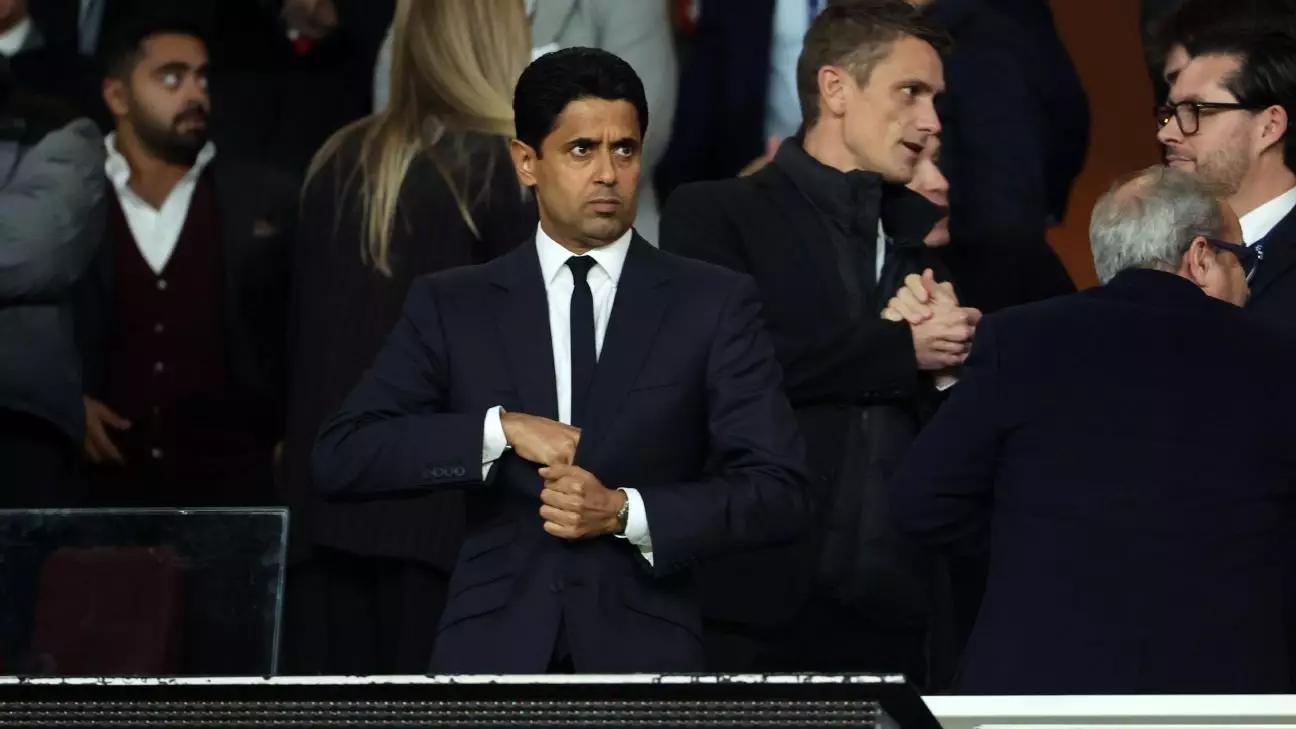The recent announcement of FIFA’s restructured Club World Cup has stirred a maelstrom of controversy within the football community. Set to launch in the United States on June 15, 2025, this revamped competition features 32 teams competing over four weeks. Paris Saint-Germain’s president, Nasser Al-Khelaïfi, has taken a strong stance in favor of the new format, urging dissenters to withdraw. While his enthusiasm may resonate with some, it raises questions about the broader implications of the tournament on both clubs and players alike.
One of Al-Khelaïfi’s primary arguments centers around the financial benefits of the Club World Cup, claiming it is a necessary means for clubs to offset rising player wages. While the sentiment is valid—football finance has indeed become increasingly strained due to soaring salaries—it warrants deeper scrutiny. The underlying question is: does fiscal sustainability justify overburdening players and extending seasons? If top clubs like Manchester City and Real Madrid face an 11-month season, at what cost does this financial model come?
Clubs are under immense pressure to maximize revenues, and while participation in international tournaments may provide much-needed cash, it cannot come at the expense of player health and well-being. The shift towards a longer tournament schedule has profound ramifications, potentially diminishing the quality of play and player longevity. Al-Khelaïfi’s assertions that clubs are not solely motivated by profit appear somewhat dismissive of genuine concerns raised by coaching staff and athletes.
In a landscape increasingly characterized by commercialization, the voices of players and coaches must not be overlooked. Pep Guardiola, manager of Manchester City, expressed frustration after his club was denied a request to alter their fixture list to accommodate preparation for the Club World Cup. His remarks reflect an ongoing debate about the operational feasibility of squeezing yet another tournament into an already congested calendar.
Professional athletes are not mere commodities; they are individuals whose physical and mental well-being can be jeopardized by excessive fixtures. Critics argue that player welfare is often sidelined in favor of financial gain, and the Club World Cup exemplifies this troubling trend. As we reckon with the evolution of football, it’s imperative to prioritize a balance between fiscal responsibility and sustainable player management.
Al-Khelaïfi acknowledged the difficulties clubs face in preparing for this new format, yet he remains optimistic about its potential success. The European Club Association (ECA) and FIFA must tread carefully; the introduction of this tournament can be seen as a test of whether a compromise can be reached. Engaging all stakeholders—clubs, players, governing bodies, and fans—is essential to forge a sustainable path that accommodates the evolving landscape of global football.
Moreover, the anticipated economic uplift from the revamped tournament could benefit not just participating clubs but also leagues and communities worldwide. If effectively managed, this new frontier in club competitions may well become a cornerstone of the football calendar, generating significant interest and revenue. However, success hinges on the ability to balance commercial interests with the integrity of the game.
The upcoming FIFA Club World Cup presents both challenges and opportunities that beckon deeper discussion among all contributors to the sport. Al-Khelaïfi’s impassioned defense underscores a pressing reality: the financial strain on clubs must be met with innovative solutions that safeguard player welfare and uphold competitive integrity.
As football transitions into this uncharted territory, the need for holistic dialogue among stakeholders has never been clearer. If embraced thoughtfully, the Club World Cup has the potential to elevate the sport, but only if it prioritizes the players, clubs, and local communities involved in this beautiful game. The future of football hinges on our collective ability to balance the attractions of international tournaments with the essential humanity of the sport.

